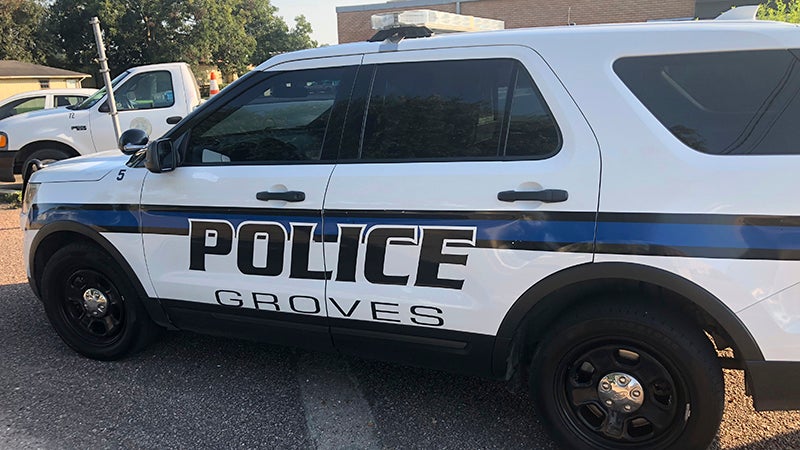Local customs officials see no changes in work
Published 9:56 am Monday, March 6, 2017
Since Donald Trump was elected president, immigration issues have been prominent in the news.
The U.S. Customs and Border Protection in Port Arthur, however, estimates not much will change in their mission for the next four years, according to Bruce Guyote, port director/INA instructor.
“There may be an increase in land borders and at airports,” Guyote said. “The Border Patrol may see an uptick in activity more than Customs. We deal with bulk petrochemical ports.”
“We enforce laws more than any other federal agencies of the federal government.”
One change that could happen, though, are governmental services going over to the private sector and to technological advances.
Yet their agency does get quite busy when the economy improves.
Yolanda Choates, public affairs specialist for the Customs Department, said Port Arthur is expanding through its petrochemical industry and maritime industry and “doing good stuff.”
The Customs Department is the oldest federal law enforcement in the United States.
On July 31, 1789, the U.S. Congress passed the third of three acts that provided for administering customs tariffs and collecting duties, according to their website. Earlier on the nation’s birthday, the Tariff Act of July 4, 1789, had been passed by Congress followed by the Duties on Tonnage statute on July 20. And on the last day of the month, Congress established customs districts. Administration of customs laws was placed under the secretary of the Treasury by an act of September 2, 1789.
Guyote said the goals of Customs are antiterrorism, trade, and drug interdiction.
They also assist the U.S. Coast Guard and the Jefferson County Sheriff’s Office on the water.
They inspect foreign vessels or U.S. vessels taking on foreign cargo.
The Customs Department is also with the International Traffic in Arms Regulations that inspects weapons and their destination unless there’s a legitimate purpose approved by the State Department or Commerce.
For example, a vessel with machine gun mounts headed for Lebanon would draw attention
For land borne traffic, the primary booths for U.S. citizens are in Canada and Mexico. U.S. citizens are subject to examination subject to things like body language and the information they give.
The NEXUS program allows travelers a global point of entry.
Pre-screened travelers are expedited processing when entering the United States and Canada. Program members use dedicated processing lanes at designated northern border ports of entry, NEXUS kiosks when entering Canada by air and Global Entry kiosks when entering the United States via Canadian Preclearance airports.
NEXUS members also receive expedited processing at marine reporting locations.
X-ray and radiation detection devices expedites the inspection of cargo by not hindering trade while protecting the homeland.
Trusted Traveler Programs also provide expedited travel for pre-approved, low risk travelers through dedicated lanes and kiosks.
Agriculture is the largest moneymaker for the United States and Guyote said part of Customs’ duty is not allowing pests or diseases damage the country.
For example, wood not treated can attract the Formosa termite which is destructive. Dirt from overseas is monitored too, to prevent foot and mouth disease domestically.
Travelers are denied pre-clearance before they come to the U.S. if they have committed crimes of moral turpitude, they possibly terrorists or they are a member of organized crime.
Passengers and crew of a ship, for instance, may be pre-vetted when Customs gets the manifest 24 hours earlier.
The Customs Department’s territorial waters extends 12 miles and hovering vessels in the Gulf of Mexico are subject to inspection.
Vessels too large to dock will have their cargo dumped onto smaller vessels and brought to port.
The Valero dock on Pleasure Island is the only facility in Port Arthur that can load a one million barrel vessel. Motiva Enterprises, on the other hand, produces 600,000 barrels a day.
In 2015, the Customs Department brought in $46 billion. Their operating budget was $13.9 billion. Their budget for 2016 was $13.6 billion.
On a typical day in the United States, the Customs Department pre-screens six million air travelers, 1.8 million air travelers on arrival, (300 million travelers via land, sea and air) 4.5 million miles of waterways, secure $2.4 trillion of trade with a little more than 23,000 officers.
The Customs Department is in Georgia. Advanced training is in West Virginia, South Carolina and New Mexico.
The maximum age to be an agent is 37, unless the candidate has military experience in which they can be a little older. The general retirement age is 57.
Larry Kelley, deputy port director of the Port of Port Arthur, said the port values the relationship with their federal partners, including Customs and Border Protection.
“Often underappreciated, these men and women work to keep our area safe and international commerce moving,” he said. “Customs Port Director Guyote and his team with CBP demonstrate great professionalism in often difficult times. Many of the officers including Bruce are prior military service. We appreciate their continued service to our country.”
Another partner the Customs Department works with is the Sabine-Neches Navigation District.
Their vision is to responsibly manage, advocate for and improve the ship channel and navigable waters of Jefferson County to enhance the economy, environment and quality of life in Southeast Texas.
The Sabine-Neches Waterway:
- Generates $32 billion in economic gains and 288,000 permanent jobs nationwide
- Is the third largest waterway in the nation
- A leading crude oil exporter
- The number one commercial military outload
- The number one refiner of jet fuel and the majority of U.S. military jet fuel
- Refines a minimum of 13 percent of America’s daily fuel consumption
- Largest LNG exporter in the country
- Has 55 percent of the nation’s strategic petroleum reserves
David Ball: 409-721-2427





